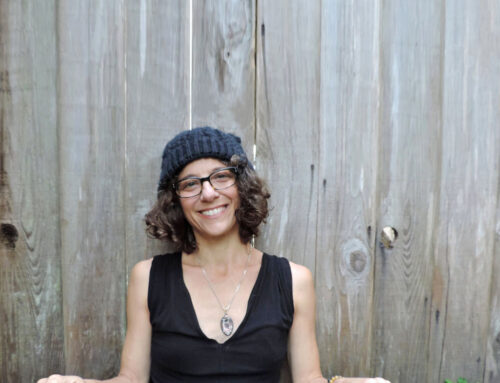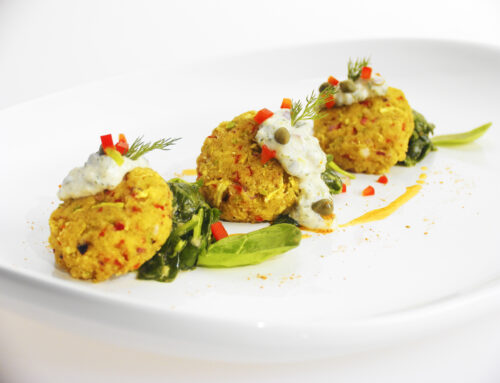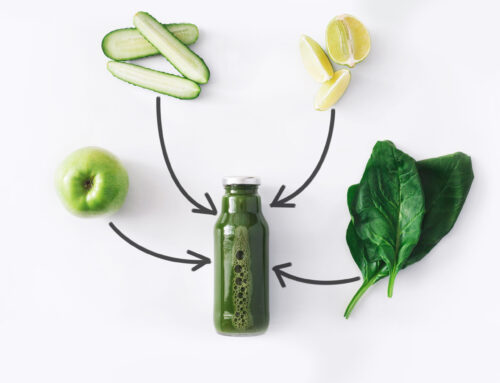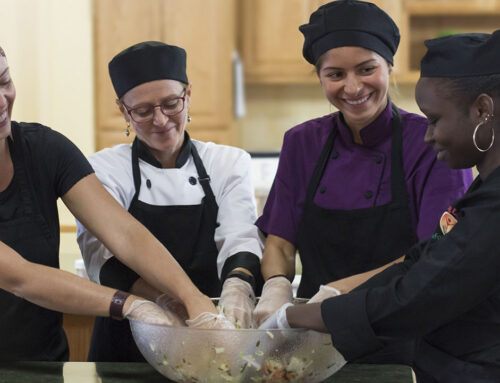Listening to the recent controversy surrounding an NPR story about organics, I was amazed that the “scientific findings” in this particular study seemed to refute the idea that buying organic produce makes a difference to health. And this in spite of a nationwide movement of people who are increasingly choosing farmer’s markets and locally grown organic produce (an even more important distinction, buying local, I think). On a personal level, I definitely notice the vitality of organic foods. In our salad bar, some of the greens are shipped from San Francisco and some are grown right here in Fort Bragg. The local ones look, taste, and feel much “brighter” and healthier. Nearly everyone knows that food picked right out of the garden has more nutritional value than vegetables that have been stored in your refrigerator for a long time. The proof of the pudding is in the eating, I say. Finally, when the United States is coming around to what Europe has realized for decades – that selecting produce grown on small farms, or growing your own with traditional farming methods does make a difference, a respected media outlet like NPR tries to tell us differently.
On a personal level, I definitely notice the vitality of organic foods. In our salad bar, some of the greens are shipped from San Francisco and some are grown right here in Fort Bragg. The local ones look, taste, and feel much “brighter” and healthier. Nearly everyone knows that food picked right out of the garden has more nutritional value than vegetables that have been stored in your refrigerator for a long time. The proof of the pudding is in the eating, I say. Finally, when the United States is coming around to what Europe has realized for decades – that selecting produce grown on small farms, or growing your own with traditional farming methods does make a difference, a respected media outlet like NPR tries to tell us differently.  The good news is that the public reaction and comments on the story were largely organic positive, which makes an immense amount of sense. The public is not going to be hornswoggled at this point in time. Sometimes its hard to believe that The Silent Spring by Rachel Carson came out almost exactly 50 years ago, in September 1962. Wake up scientists! You’ve been asleep almost as long as Rip Van Winkle. We all need to wake up to the fact that every choice we make that has to do with organics and supporting sustainable farming in our communities really counts. Whatever decisions we make about these issues will affect future generations and the planet for a long time to come. Which is one of the reasons I’m glad that serving organic food in our school and in our cafe has been Living Light policy from the beginning.
The good news is that the public reaction and comments on the story were largely organic positive, which makes an immense amount of sense. The public is not going to be hornswoggled at this point in time. Sometimes its hard to believe that The Silent Spring by Rachel Carson came out almost exactly 50 years ago, in September 1962. Wake up scientists! You’ve been asleep almost as long as Rip Van Winkle. We all need to wake up to the fact that every choice we make that has to do with organics and supporting sustainable farming in our communities really counts. Whatever decisions we make about these issues will affect future generations and the planet for a long time to come. Which is one of the reasons I’m glad that serving organic food in our school and in our cafe has been Living Light policy from the beginning. 











[…] To Be Organic by kristin […]
Thanks for your response and for the link to your blog. We all need to work to raise the consciousness of the public about our food supply.
This mis/disinformation by NPR, I’m certain, came out of the Stanford U. meta-analysis. Of course, when quoting the Stanford study, the media tells us nothing about Stanford receiving megabucks from Cargill.
Truth you tell about local food. When the bf & I went to Tree of Life in AZ, where much of the veganic food is grown on site, I was fully satisfied with a third less than I eat usually. Anyone who has eaten a just-picked tomato, still warm from the sun, is familiar with this.
Health and peace.
Zyxomma – thanks for your response. Yes not only our minds but all of our senses, and our cells respond to foods that are grown organically on fertile soil cultivated consciously. I just feel better when I eat food grown locally and picked fresh.